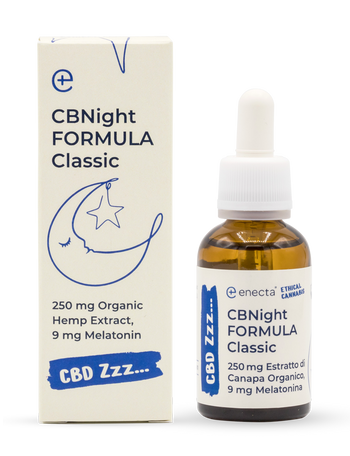Basics: CBD a Blessing for Seniors
CBD, short for Cannabidiol, is one of over a hundred cannabinoids found in the cannabis plant and has gained popularity in recent years due to its potential health benefits, especially its anti-inflammatory properties. These properties make CBD a promising candidate for treating and managing various inflammation conditions.

How CBD Works on Inflammation:
CBD interacts with the body's endocannabinoid system (ECS), a complex system that plays a key role in maintaining homeostasis. Studies also show that taking Cannabidiol has a positive effect on inflammation conditions in humans. CBD can modulate the activity of cells involved in the inflammatory response, thus helping to reduce inflammation.
Potential Applications:
The versatility of CBD is evident in its potential to alleviate a wide range of inflammation conditions. From arthritis and joint pain, which can be mitigated by its pain-relieving effects, to skin conditions like psoriasis, acne, and eczema, where CBD reduces inflammation and contributes to skin health. Even in autoimmune diseases, where an overactive immune response leads to inflammation, CBD shows potential in modulating this response and alleviating symptoms. Chronic inflammatory bowel diseases like Crohn's disease and ulcerative colitis could also benefit from the anti-inflammatory effects, as CBD reduces inflammation in the digestive tract, thus improving quality of life. Additionally, CBD plays a role in preventing cardiovascular diseases by lowering blood pressure and reducing inflammation, which can decrease the risk of heart attacks and strokes. Last but not least, CBD offers gentle relief for chronic pain conditions by reducing inflammation and acting on the nervous system.
Safety and Tolerability:
A significant advantage of CBD over traditional anti-inflammatory medications is its favorable safety profile. Without the typical side effects of many painkillers, CBD offers a tolerable option for those seeking natural ways to alleviate their discomfort. However, consulting a doctor is advisable to avoid possible interactions with other medications.

CBD as an Alternative: Fewer Side Effects from Medications
In today's age, where more and more elderly people are looking for gentle and effective treatment methods, cannabis emerges as an attractive alternative. Especially for those living with everyday ailments like chronic pain, sleep problems, and anxiety, CBD offers hope for relief with a lower risk of unwanted side effects.
The Gentle Power of Cannabis: Unlike many traditional medications often associated with a range of potential side effects – from digestive issues to dependencies – CBD is considered milder. A key reason is CBD's interaction with the body's own endocannabinoid system, which plays a central role in regulating our physical balance.
How CBD Helps:
- Natural Pain Relief: CBD can serve as a natural alternative to painkillers, especially those with high addiction potential. Many report significant pain reduction without the side effects of conventional medications.
- Restful Sleep Without Next-Day Side Effects: Unlike some sleeping pills that can lead to a feeling of grogginess in the morning, CBD supports a calm and restful sleep without the typical "hangover" effects.
- No Severe Digestive Issues: While certain anti-inflammatory medications can strain the stomach, CBD offers pain relief without the typical digestive side effects.
- Adjustable Dosage for Individual Needs: The flexibility in dosing CBD allows users to find the optimal effect for them, without the risk of having to endure unpleasant side effects.
Increasing Mobility for Seniors with CBD
For older adults struggling with mobility limitations, CBD opens new pathways to improved quality of life. Whether it's the daily walk, gardening, or simply playing with the grandchildren – pain, stiffness, and muscle spasms can make these simple joys of life challenging. Yet, CBD shows promising potential to provide relief right where it's needed.
CBD can alleviate pain by acting directly on the causes of discomfort and stiffness. By influencing the body's endocannabinoid system – a key network involved in regulating pain and inflammation – cannabis helps to establish balance and reduce inflammation as well as pain perception. This not only leads to a reduction in pain but also a decrease in stiffness and muscle spasms, significantly improving mobility.
Better Sleep in Old Age: The Role of CBD
The increasing recognition of cannabis, especially CBD-rich variants, as a means to improve sleep reflects an important shift in the treatment of sleep disorders, especially among older adults. Sleep, a critical factor for well-being, tends to change with age, leading to difficulties falling and staying asleep.
The Role of Cannabis in the Sleep Process:
Cannabis affects the body's own endocannabinoid system, which regulates the sleep cycle. CBD, known for its non-psychoactive properties, helps reduce anxiety and stress-related unrest – two main causes of sleep problems in old age. Thus, CBD represents a gentler alternative to traditional sleep medications, which can be addictive and lead to daytime drowsiness.
How CBD Helps with Sleep:
- Anxiety Reduction: CBD promotes relaxation and makes it easier to fall asleep by reducing anxiety and stress.
- Sleep Cycle Regulation: It helps normalize the sleep cycle and improve REM sleep, leading to deeper nighttime sleep.
- Pain Relief: The cannabis component CBD offers pain relief for seniors with chronic pain, which in turn aids in falling asleep.
- Reduction of Nighttime Awakenings: CBD can help decrease the frequency of waking up during the night, leading to a more continuous and deeper nighttime sleep.

CBD and Alzheimer's: A Ray of Hope for Seniors
The growing curiosity about the neuroprotective properties of cannabis, especially in fighting neurodegenerative diseases like Alzheimer's, marks an exciting advance in medical research. These diseases, often associated with advancing age, lead to the loss of brain cells and significantly impair cognitive functions.
Cannabis and Its Interaction with the Brain: Cannabis contains active ingredients like CBD and THC, which act on the body's own endocannabinoid system (ECS). This system regulates important body functions and plays a crucial role in maintaining neural balance. By interacting with the ECS, cannabinoids can help reduce inflammatory processes in the brain associated with neurodegenerative diseases.
Mechanisms of Neuroprotection include:
- Anti-inflammation: Cannabidiol contributes to mitigating neuroinflammatory responses responsible for the progression of neurodegenerative diseases.
- Reduction of oxidative stress: The antioxidant properties of cannabinoids help neutralize free radicals, thus minimizing brain cell damage.
- Support for cell viability: CBD promotes the survival of neurons, thereby preventing cell death, which is crucial for the prevention of brain diseases.
- Modulation of Tau proteins and Amyloid-Beta: There is evidence that CBD may influence the accumulation of harmful proteins in the brain associated with Alzheimer's.
Significance for Older Adults:
For the growing population of older adults, who are at higher risk for neurodegenerative diseases, CBD could offer a preventive or delaying effect on the development of such conditions. The prospect of using cannabis to slow the progression of these diseases offers a ray of hope for many seeking alternative treatment options.

If you found this article interesting, put a Like on the Enecta Facebook Page and you will always be updated on the latest news and novelties regarding the world of Cannabis and CBD!


































